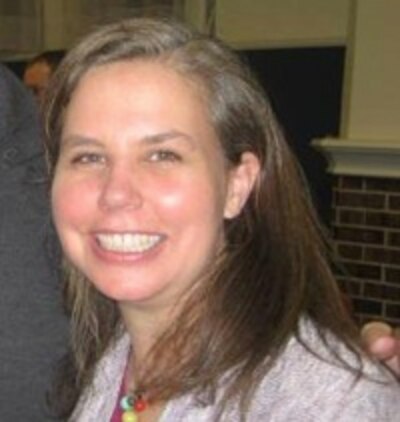Shutting down all or part of a school is never a great experience.
But in Denver, charter school operators are getting better at it. And they’re getting better at not even approaching the Denver Board of Education until every “i” has been dotted and every “t” crossed.

That is due, in part, to the fact that the district is two years into the District-Charter Collaboration Compact, a foundation-funded initiative aimed at holding charters accountable for results and formalizing ways to spread charter successes with all district schools. Today, observers say charter school founders are coming to the school board with better and more thoughtful plans that outline specific targets and goals that are heavily reliant on student achievement data.
Furthermore, when it becomes clear a charter school isn’t meeting its goals, there is far less hand-ringing, arguing and controversy than there used to be, DPS and charter school leaders say.
“A lot of charters opened in (Denver) in the past 10 years,” said Tim Sznewajs, chair of the Venture Prep Charter School board. “Many of them have not lived up to their promise. All those organizations should be doing some soul searching. Why are we doing this if we can’t do any better than the district?”
Venture Prep one of many schools to change course
Venture Prep, a 6-12 school that shares a campus with Smiley Middle School, a traditional neighborhood school, is school where board members and school leaders looked at the stats, and decided to make a major shift by eliminating the middle school.
In fact it is among several that have agreed to shift course since the compact was approved, including six charter schools that have either agreed to – or been asked to – shut down entirely.
Sznewajs, an investment banker, was one of the founding board members of the Denver Venture School, a high school focused around business and entrepreneurial skills. During the second year of operation, Denver Venture School leaders saw the opportunity to merge with Envision Leadership, a charter management organization that had a charter middle school in Denver and shared an educational philosophy.

“We were struggling with enrollment,” Sznewajs said. “They offered us support.”
The school became the 6-12 called Venture Prep, where he also serves as board chair. The first batch of seniors graduated last spring.
But performance at the middle school level lagged, in part because there wasn’t time to “build a foundation” by adding one grade level at a time and there were many staffing changes, Venture Prep Principal Ken Burdette said.
The charter board decided last fall to shutter the middle school, which had been color-coded red, the worst, on the School Performance Framework (SPF). The SPF examines not only student growth on standardized tests, but student engagement, parent satisfaction, enrollment rates and college and career readiness.
“For our short track record we didn’t necessarily have the performance levels,” Sznewajs said. “It was part market and part performance… but we have a philosophy that if we can’t do better than the district can in terms of performance, then we shouldn’t be in business.”
Burdette pointed out that from 2011 to 2012 the middle school grew 110 percent on the TCAP, but it wasn’t enough to save the middle school.
“If we had been rated on one year, we would have been would have been yellow (accredited on watch),” Burdette said. “We were penalized because of a really weak 2010-2011 data set. We grew last year but not enough to take us out of the red.”
Under the SPF, Venture Prep High School was rated green based on last year’s data (meet expectations). A few months ago, Venture Prep High School was granted a one-year contract extension before it is reviewed again.
School leaders believe Venture Prep serves a key niche – a college-prep curriculum using an expeditionary learning, project-based model in a small school setting for students who may not thrive at a huge school. Students wear uniforms (white dress shirts and ties with khaki pants for boys; white dress shirts and khaki skirt or pants for girls) and are called “scholars.” Parents must commit to taking an active role in their child’s education.
This year, there are only 220 high-schoolers at Venture Prep. About 80 percent qualify for free and reduced price lunch; 42 percent are Hispanic; 42 percent are black; and 16 percent are white or other. The middle school had a higher rate – or 96 percent – free and reduced price lunch students, an indication of poverty, according to the Colorado Department of Education.
Seventeen students graduated from Venture Prep last year. Of this year’s 41 graduating seniors, 90 percent have been accepted to college and they won $1 million in merit-based scholarships, Burdette said. Yet enrollment remain an issue. Burdette said his goal is to have 350 students enrolled in the high school.
Charters regularly scrutinized
There is no doubt that Denver Public Schools is known as opening its arms to charter schools that demonstrate a solid plan for student success. The school board has approved 14 new charter schools since 2010 – the year the so-called “charter compact” was approved. There are currently 39 charter schools operating in DPS. (Two are currently in the process of closing; one will close at the end of this year; and one will phase out over two more years). Each November they are intensively reviewed.
DPS in December learned it would receive $4 million from the Bill & Melinda Gates Foundation to bolster work already through the charter compact. The grant will be used in part to support peer-to-peer learning labs for both principals and teachers based on the areas where growth is needed. Pilot programs are also underway to develop strong short turnaround student assessments.
The initial charter compact signed by all Denver’s charter schools included goals to locate schools in the city’s highest-needs areas and provide quality programs for all students, including English language learners and those with special needs. Charters also agreed to consider opening their doors to students moving in the middle of the school year. The original DPS-charter compact does not require charter schools to have assigned attendance boundaries, though Superintendent Tom Boasberg has said he favors them for charters in district buildings.

Alyssa Whitehead-Bust, DPS chief of innovation and reform, said the landscape for charter schools in Denver is changing, thanks to the compact. By holding the schools to very specific standards, the process of approving or deciding to keep a school on a tighter leash is much more straightforward, she said.
The compact committed both the district and charter school operators to three equities: accountability, opportunity, access and responsibility.
“What we tried to do is be extraordinarily clear on our expectations of school,” she said. “We help schools monitor themselves on those expectations. I am really pleased with the progress we’ve made in the charter community. We have organizations do their own deep analysis and self assessments.”
In short, the goal is “to put kids first.” Decisions about the fate of charters can be made “without politics and public discourse,” she said.
“In some ways charter schools – because they have to go through deep dives every three to five years – are held to equal if not higher standards,” Whitehead-Bust said.
Point of charters in the first place
The whole point of charter schools in the first place was to create public education’s “R&D” arm, Whitehead-Bust said. The autonomous schools were created to test new strategies and educational philosophies so that successful schools could be replicated on a mass scale.
Unfortunately, that hasn’t really happened, Whitehead-Bust said.
Through the charter compact, Denver is trying to “fulfill that promise.”
Jim Griffin, president of the Colorado League of Charter Schools, said the advent of the Colorado Growth Model – the use of standardized testing data to show whether students are gaining academic skills (or not) – also helped districts hold charter schools to higher standards.
Griffin said he still recalls the scene in the late 1990s when a school might OK a new charter based – not on data but on how well someone “could present to the school board.”
“It was so unscientific,” Griffin said.
Use of the growth model, along with School Performance Frameworks, which also examine student and parent engagement, has “completely changed the tenor of the discussion,” Griffin said.
“It’s made things so much calmer and simpler and straightforward.”
Not always seamless process to close a charter
However, in Denver and other districts the act of extending charter contracts or asking for changes doesn’t always make sense, or go smoothly.
Tony Lewis, executive director of the Donnell-Kay Foundation, which supports the creation of charter schools, cited the Denver school board’s decision – based on staff recommendations – regarding the fate of Northeast Academy.
The district said the school could not accept new sixth-graders or ninth-graders next year. If test scores improved, the school could add grade levels – an approach Lewis calls “wrong-headed.”
“If you are running a 6-12 school and next year you’ll have no more new sixth-graders…then the following year you’ll have no seventh-graders. It makes it hard to ever recover.”
“Why stretch it out?” Lewis questioned in reference to whether a school is closed. “Do it or don’t.”
DPS board member Jeannie Kaplan agreed that the demise of Northeast Academy is dragging on too long.
“It is virtually impossible to close charter schools,” she said. “Even absolutely horrible charter schools take us years to close.”
Kaplan said it’s imperative that charter proposals are closely evaluated on the front end to minimize the launching of ill-conceived schools that don’t meet the needs of all students, including English language learners or special education students.
Often critical of the district’s open arms’ approach to charter schools, Kaplan did acknowledge that a more intensive review is happening on the front end in Denver since the compact was implemented.
However, she said, her biggest issue with the compact is that the school board never voted on it.
“To me, this is one of the most far-reaching policies the administration has implemented and yet the elected officials have not voted,” Kaplan said. “This compact has changed the entire landscape for charters in this district.”
Furthermore, Kaplan does not believe the charter compact has resulted in more equity for students, one its core promises.
“We are offering choice only if you can get your kid there,” Kaplan said.
DPS charter schools closed since charter compact
PS 1 Charter School in 2011
School had a history of poor performance despite several probationary contracts granted.
Skyland in 2010
School had a history of poor performance despite several probationary contracts granted.
Life Skills in 2012
School had a history of poor performance despite several probationary contracts granted.
Manny Martinez in 2012
School opened with the lowest academic performance of any school in the district. Following negotiations with the District the school voluntarily agreed to phase out its program.
Venture Prep Middle School in 2012
School had a history of poor performance despite one-year conditional renewal granted.
Northeast Academy Charter School in 2013
School had a history of poor performance despite probationary turnaround contract granted.
